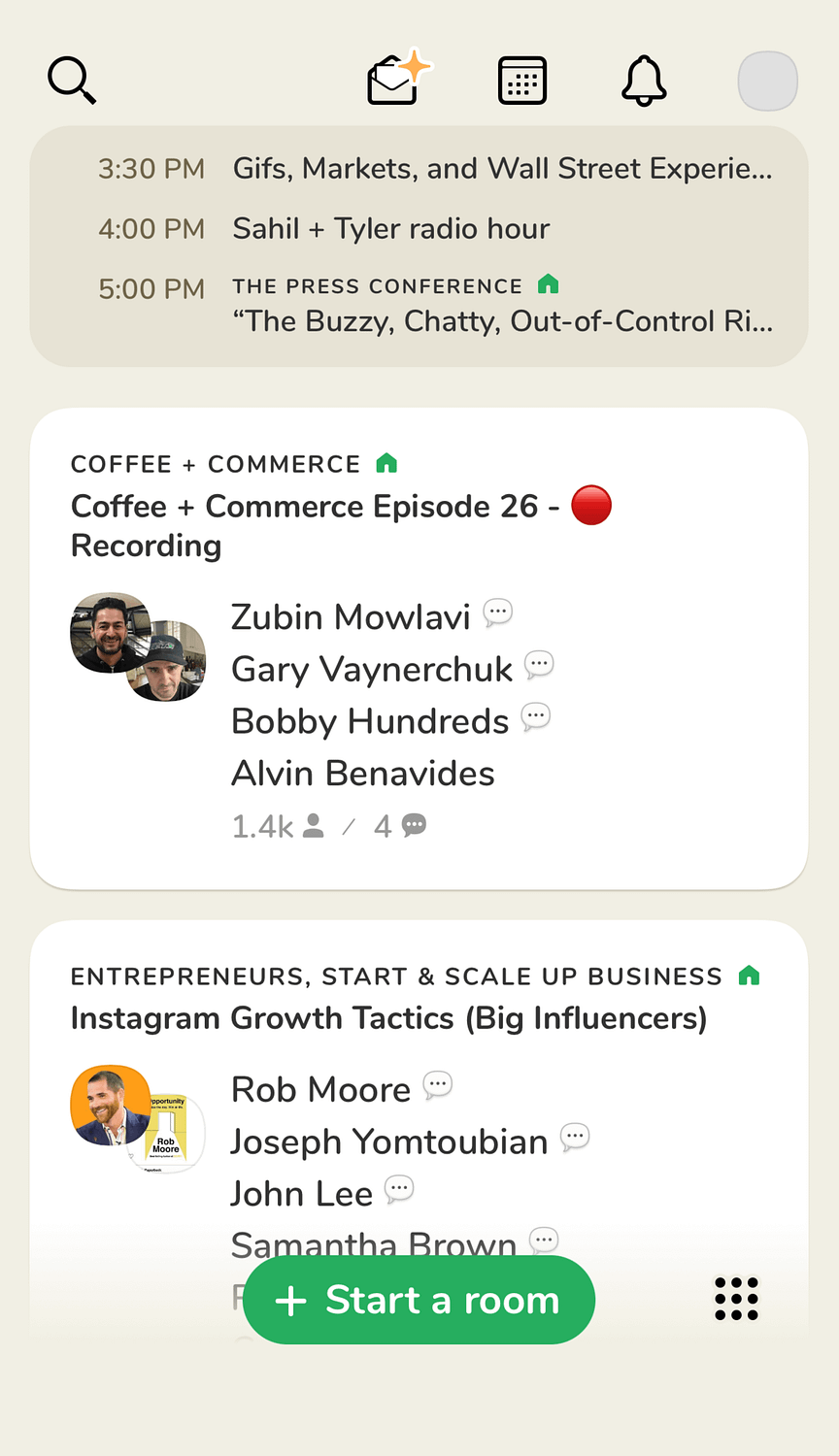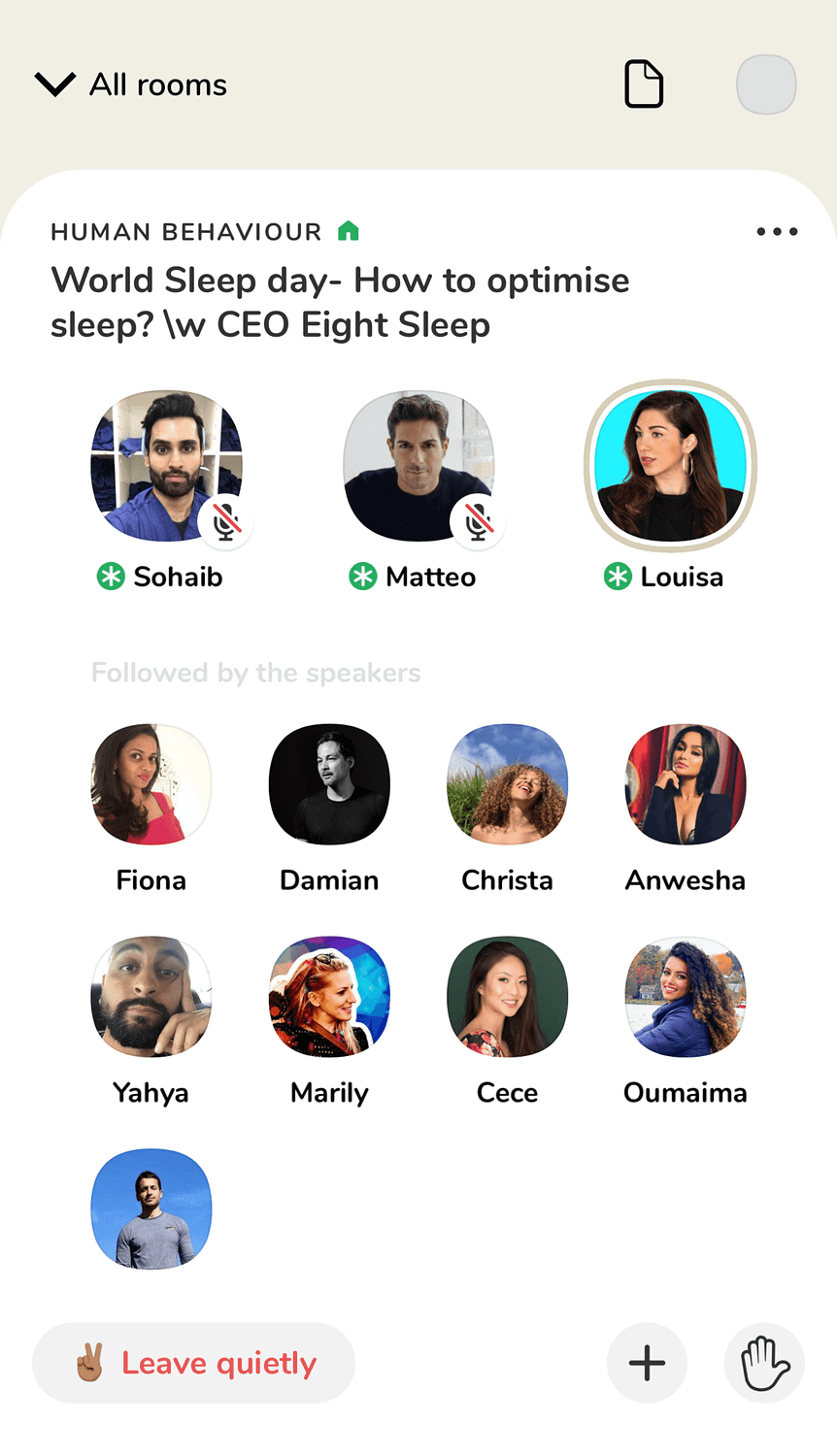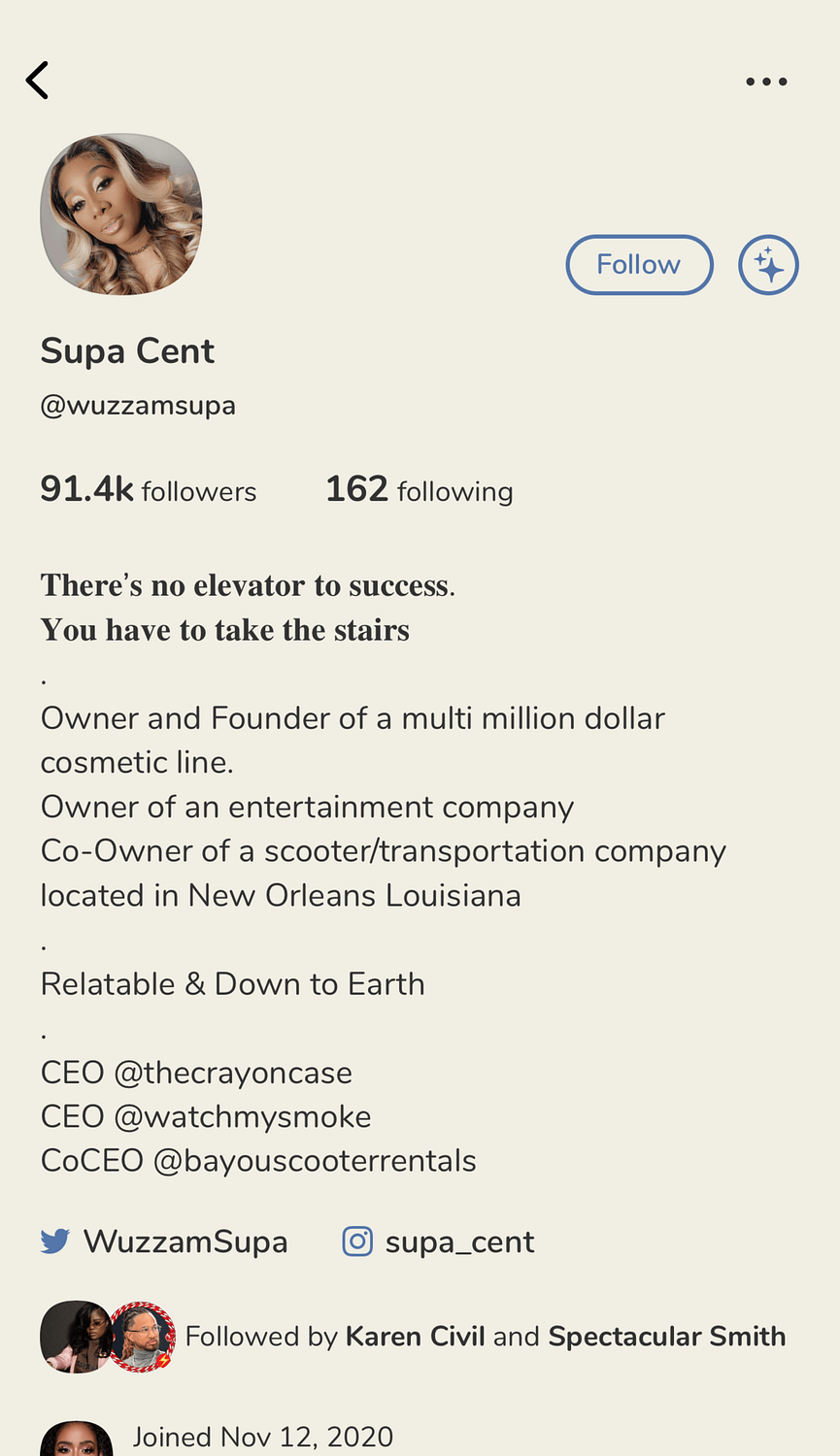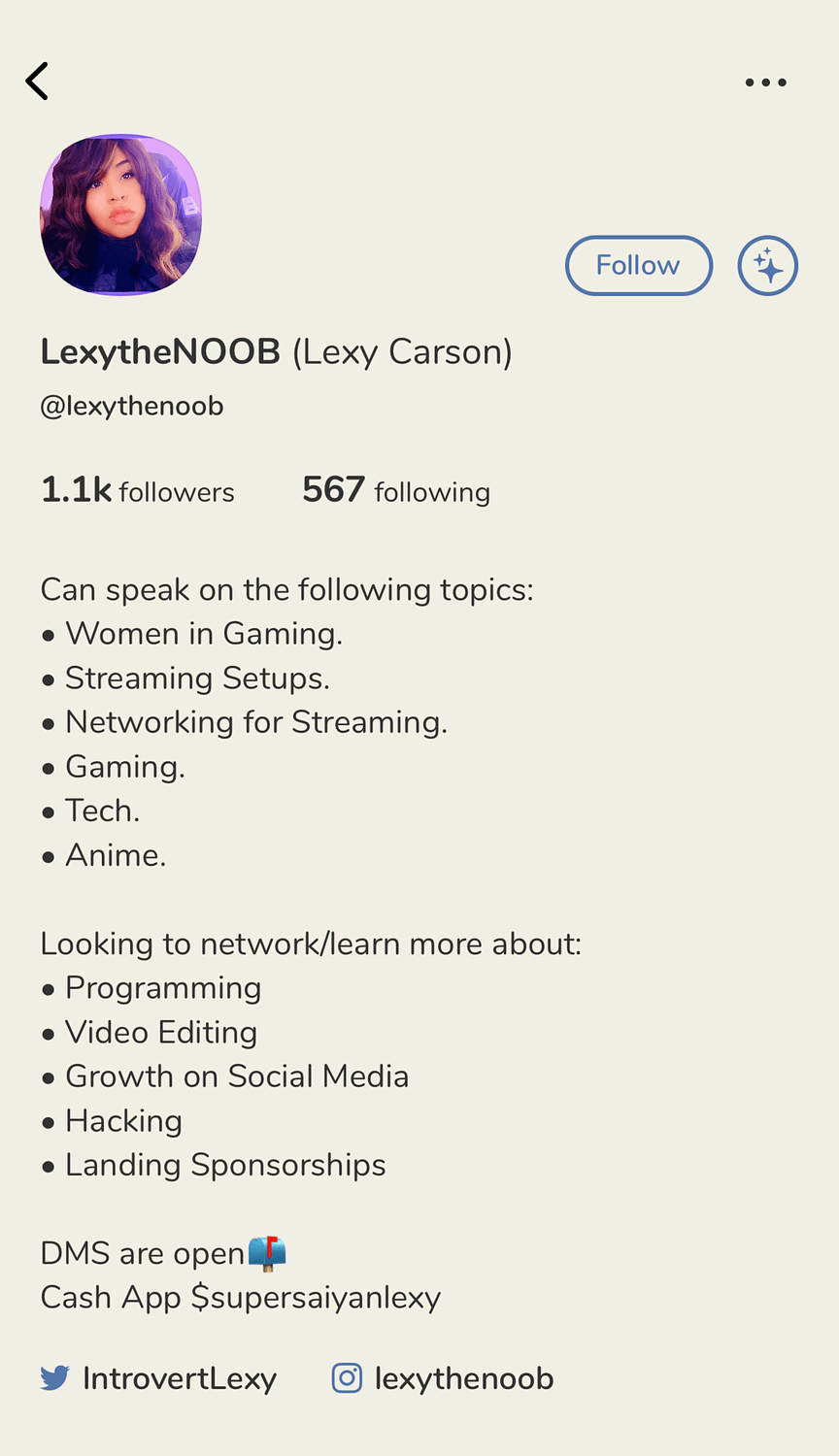As an emerging social media platform, Clubhouse is attracting a lot of attention. All of the buzz might have you asking, “What is Clubhouse?”, and wondering if it has marketing potential for your organization.
Fortunately, this Clubhouse has a few key features that you can consider to determine its advertising value. By assessing how compatible your brand is with the app’s informal networking, you can decide what role it will play in your future promotional plans.
In this article, we’ll introduce you to the basics of Clubhouse, and discuss what makes it stand out from other social media platforms. Then we’ll provide three reasons why it may be a useful marketing tool. Let’s get started!
An introduction to Clubhouse


Let’s start by addressing the question of “what is Clubhouse?” Put simply, it is a social media network that helps people communicate through informal audio chats.
However, it is currently only available to those with an iPhone, and requires an invite from another member to get in. You also have the option of joining a waiting list.
Creators Paul Davison and Rohan Seth have announced that the app will be open to the public soon. This is presumably to work out all the technical details.
Nevertheless, at this stage, there’s an undeniable air of exclusivity around the app.
Once you’ve registered with an invitation, the app takes you to the Clubhouse home page. The layout varies based on your contacts and interests, but the general structure will resemble the following image:


Not to mention, social media sites are now considered viable sources of news. Customers even look towards retail brands to learn about what’s going on in the world.
Whether you like it or not, having a social business presence puts you in the line of news distribution.
Clubhouse works by providing users with a seemingly limitless number of rooms to join, with topics ranging from cryptocurrency to dating advice. True to the app’s informal focus, members are free to pop in and out of spaces as they please.
Alternatively, you can host your own room for more control. Other functions worth noting include a calendar for upcoming events and a search function to help you find new people or conversations.
What makes Clubhouse unique
Clubhouse emphasizes member authenticity. A verified phone number is required to join, and while aliases are allowed, legal names are required. Users have a single opportunity to change their registered names. These features encourage less anonymity and more genuine connection.
Secondly, there’s no robust profile function. Users can link their Twitter and Instagram accounts and add a bio. However, it’s a far cry from the frequent updates found on platforms such as Facebook. Instead, members build their reputations based on discussions and networking. This structure prioritizes community interaction over independent contributions.
Moreover, Clubhouse is remarkably user-friendly. Joining or starting a call is simple with the help of the intuitive interface. If you don’t consider yourself technically savvy, you’ll likely still be able to navigate the app with ease.
Finally, Clubhouse’s informality presents an interesting opportunity. The absence of a video component takes some pressure off users, while the lack of any records encourages more natural conversation. Nevertheless, the room topics are eclectic and often attended by industry leaders.
In a way, this platform builds on the success that podcasts have long enjoyed: enabling members to listen in on expert ideas. However, it also provides the opportunity for dialogue. Clubhouse offers a relaxed platform to help you connect, whether you’re looking to hear from thought leaders or discuss with colleagues.
Why Clubhouse may be a useful marketing tool (three key reasons)
Now that we’ve addressed the question of “what is Clubhouse?”, you may be wondering if it could help you level up your marketing. It’s important to find the best social media to reach your target audience, so we’ve found three reasons why this popular app may be a good fit for you.
1. There are countless opportunities to dig into your niche
We’ve already discussed the flexibility that Clubhouse offers with its room system. However, this trait can be especially helpful to marketers hoping to explore their fields a little deeper.
For example, let’s say you are marketing mattresses. You might hop into the following sleep-focused room for casual market research:


You could get a better idea of the latest ‘sleep hacks’, and use this information to re-calibrate your ads. Another option would be to host a room to share your views on getting the best sleep possible. With regularly scheduled events, there’s even the potential to solidify yourself as a thought leader.
Additionally, your target audience might also have a presence on the app, and consumers may be interested in sharing their thoughts with you. Unlike Twitter, which is largely insular and text-based, Clubhouse’s audio introduces a more human element. Members speak directly to each other, which could lead to more thoughtful, collaborative discussions.
However, it bears repeating that Clubhouse keeps no records of your conversations. This might prove challenging if you want to keep the conversation going after you close the room. We recommend that you use Clubhouse in combination with other social media platforms.
Clubhouse can be an effective tool for leveraging your reputation. As such, you may also want to devote resources to strengthening your overall following. Maintaining a well-rounded social portfolio is rarely a bad idea. Consider treating Clubhouse as a live streaming platform supported by your other work for now.
2. The informal atmosphere offers more personal interaction
Clubhouse has been deliberately designed to encourage casual conversation. A brand identity can be powerful, but it can also occasionally feel distant to consumers. This app offers a simple way to add a face and voice to your organization that can actively interface with your audience.
Given the need for a unique phone number and legal name, brand profiles aren’t currently possible on Clubhouse.
Nevertheless, CEOs and entrepreneurs are taking to the platform to represent their businesses. Supa Cent, the founder of The Crayon Case cosmetics, is one example.
Relaxed by design, Clubhouse enables users to mingle with executives in a way that’s usually reserved for TED Talks and networking. Therefore, thoughtful dialogue with interested consumers can add spontaneous and genuine interaction to your brand’s repertoire.


If you want to take advantage of this app’s energy, consider running a Reddit-style ‘Ask Me Anything’ (AMA). Questions could be focused on the industry in general or your product in particular. Any subject that gets the conversation rolling is probably a smart choice.
However, we recommend that you do all of this with a hint of caution. In its current state, Clubhouse has no moderation features. With an inability to report poor behavior, you may find the app to be a less-predictable platform than its more established counterparts.
3. There is a sustainable environment for influencers in Clubhouse’s future
Finally, you might also want to consider the value of this platform to influencers. Influencers can provide their audiences with personalized endorsements of your brand’s offerings. As such, they tend to be powerful marketing allies. Clubhouse developers are well aware of this fact: the app has firm plans to expand creator resources.
Many thought leaders may also currently be asking themselves, “What is Clubhouse?” The app’s effort to cater to their specific needs signals a bright future for influencers. Professionals who earn their living as social media personalities will likely find the infrastructure they need to sustain themselves on this platform.
Features such as built-in monetization could result in an app that’s rich in potential brand ambassadors. Some influencers, such as streamer Lexy Carson, are already establishing themselves.
Of course, this functionality has yet to arrive. Nevertheless, having that kind of support on the horizon is promising. Such features may attract a ready group of well-known experts for you to invite into your marketing campaigns.


If you find yourself with a few spare invites, you may want to consider reaching out to your current affiliates on platforms like TikTok. You can help introduce them to Clubhouse and expand your brand’s presence. This approach may also enable you to create a more holistic, cross-platform sales strategy.
Conclusion
Clubhouse is an emerging platform. With plenty of features on the horizon, the app is still taking shape. However, if you’re thinking about incorporating it into your marketing strategy, you can consider some of its initial functionalities to see if you can leverage its reach.
In this article, we covered three reasons you might find Clubhouse to be a useful marketing tool:
- It can help you dig into your niche with consumers and other creators.
- The informal audio format may lead to more personal interactions.
- Future features to support influencers could make it an optimal platform for affiliates.
What Clubhouse feature are you most excited to try? Let us know in the comments section below!
The post What Is Clubhouse (And What Does It Mean for Marketers)? appeared first on Revive Social.
